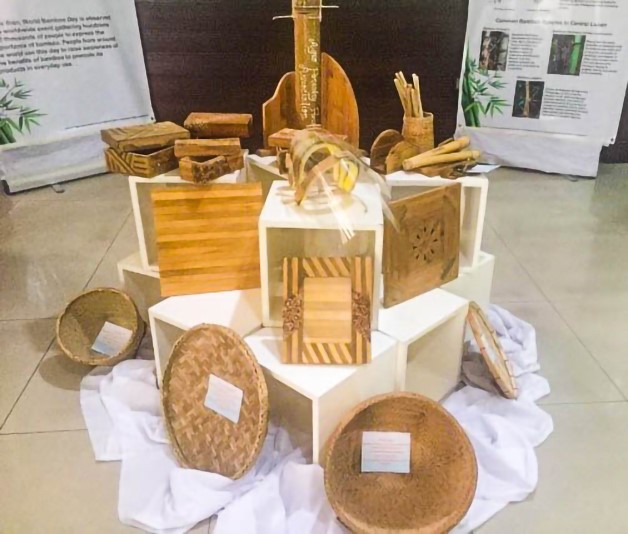The Department of Environment and Natural Resources (DENR) enjoins the world in celebration of the World Bamboo Day. This year’s theme, “Pamanang Kawayan: Luntiang Ginto ng Kabataan,” bears the economic importance of bamboo products, as well as its environmental significance on climate change mitigation.
Known as the “poor man’s lumber,” bamboo has transformed into a “green gold” resource because of its increasing value in the global economy and its sustainability as among the
fastest-growing and versatile forest products.
DENR Secretary, Roy Cimatu, eyes bamboo species as an effective resource to rehabilitate degraded forestlands, and likewise promotes the development of sustainable bamboo plantations for the wood industry.
Aside from its extensive use in the construction and handicraft industry, bamboos are naturally pesticide-resistant and help to rebuild eroded soil. Studies also reveal that they absorb a high amount of carbon dioxide and emit high levels of oxygen. Research shows that there are 62 bamboo species in the Philippines. Of these, 21 are considered endemic to the country. In Central Luzon alone, there are more than 12,470 hectares of bamboo plantations established since 2012 under the DENR’s National Greening Program.
In support of the global celebration of Bamboo Day, the DENR launched an exhibit at the regional office lobby to promote the various uses and benefits of bamboo including the products that can be made out of this grass species. The bamboo display was participated in by Community-Based Forest Management (CBFM) program beneficiaries, including the Agroforestry Farmers Association (AFA) in Barangay Lubigan, San Jose, Tarlac.
AFA is the chosen beneficiary of the Agro-Enterprise Cluster and Agribusiness Development Component of the Regional Convergence Initiative (RCI). Some of their bamboo products include key chains, winnowing basket, coin bank, and other bamboo crafts. Their products are sold at the Monasteryo de Tarlac in San Jose, Tarlac.


